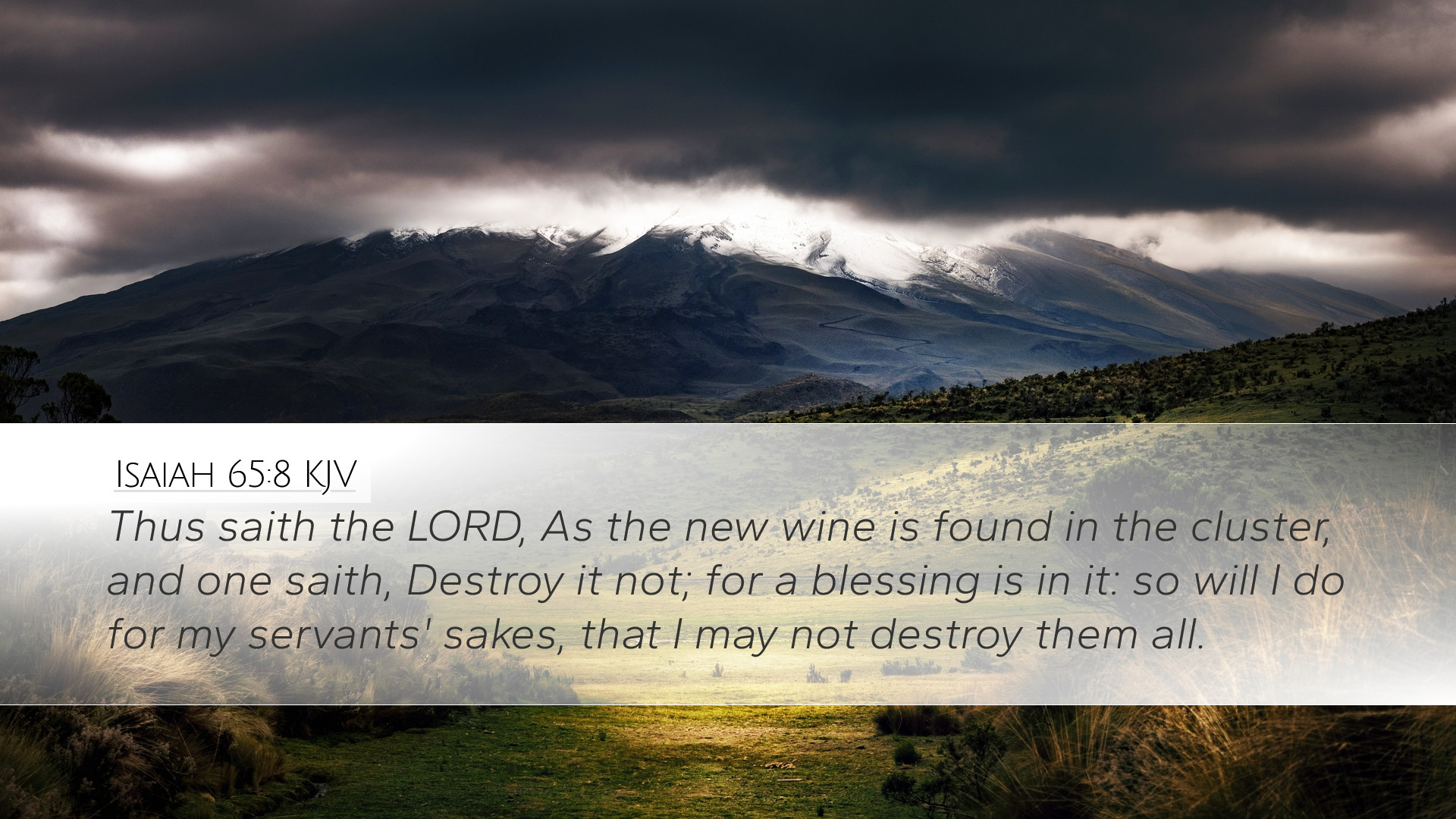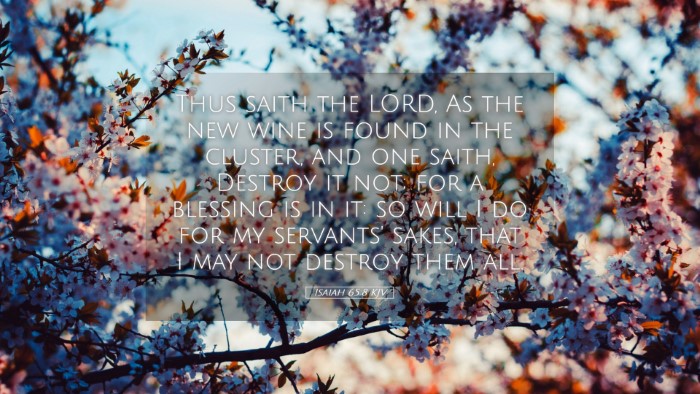Commentary on Isaiah 65:8
Isaiah 65:8 states: "Thus says the Lord: As the new wine is found in the cluster, and one says, ‘Do not destroy it, for there is a blessing in it,’ so I will do for my servants' sake and not destroy them all."
This passage encapsulates significant themes of hope, restoration, and the gracious nature of God's covenantal promises. The imagery of new wine in a cluster serves not only as a metaphor for potential and blessing but also invites a reflection on the transformative work of God amidst a generation that has often turned away from Him.
Contextual Insights
Isaiah prophesied during a tumultuous time in history, characterized by moral decay, idolatry, and social injustice among God’s people. The chapter presents a dual narrative: judgment upon the unfaithful and a promise of hope for the faithful remnant. Here, the Lord emphasizes His intention to preserve His people despite widespread rebellion.
Theological Reflections
1. The New Wine Imagery
The comparison of God's people to wine in a cluster signifies not only their valuable potential but also the idea of unity and community. Matthew Henry notes that just as new wine is essential for a fruitful vineyard, so God's people play a crucial role in His divine plan. This imagery heightens the idea of transformation — the old being made new, akin to the New Covenant established in Christ, which brings forth newness of life (2 Corinthians 5:17).
2. Divine Preservation
The phrase "do not destroy it, for there is a blessing in it" illustrates God's inclination towards grace even in times of judgment. Albert Barnes highlights that God’s nature is not one that delights in destruction but rather in redemption. This promise serves as an assurance that God will not abandon His chosen ones, echoing themes found in Romans 11 regarding the remnant of Israel being preserved.
3. God’s Covenant Faithfulness
Adam Clarke emphasizes that the declaration "I will do for my servants' sake" accentuates God’s unfailing commitment to His covenant promises. Here, God demonstrates that while consequences may come upon the unfaithful, His servants are spared for the greater purpose of working out His will in the world. This underlines the theme of intercession and representation found in both Old and New Testaments.
Pastoral Applications
As pastors and leaders, the themes in Isaiah 65:8 ring true for congregational life today. Just like the new wine, the church is to be a place of renewal and hope amid a world often characterized by division and despair.
-
Emphasizing Community: Foster a sense of togetherness, where each member is valued and seen as essential to God’s work.
-
Communicating Grace: Make it a priority to communicate the grace and mercy of God, encouraging the community to understand that their worth is intrinsic, despite societal or personal shortcomings.
-
Encouraging Transformation: Create avenues for spiritual growth and transformation through teaching and discipleship, drawing connections to the new life offered through Christ.
Conclusion
Isaiah 65:8 serves as a profound reminder of God’s mercy, His unwavering commitment to His people, and the incredible potential that lies within those He calls His own. In an age where despair often overshadows hope, this verse encourages believers not only to embrace their identity in Christ but also to actively participate in the greater narrative of redemption that God weaves through history. For theologians and scholars, this passage invites a deeper exploration of the interconnections between God's justice and mercy, while also serving as a call to recognize and cultivate the “blessings” found within the body of Christ.


